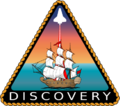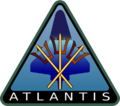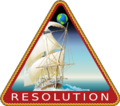Difference between revisions of "Artemis Foundation"
m (→Related Images) |
m |
||
| Line 22: | Line 22: | ||
[[File:Telescope Assembly.jpg|200px|thumb|left|Project Artemis staff building a telescope in May 2014. The Artemis Foundation was still using old [[NASA]] equipment in this early phase of the Project.]] | [[File:Telescope Assembly.jpg|200px|thumb|left|Project Artemis staff building a telescope in May 2014. The Artemis Foundation was still using old [[NASA]] equipment in this early phase of the Project.]] | ||
| − | Their primary business is administration of Project Artemis, the space science body formed after [[NASA]]'s operations were absorbed by the [[Transrationality Science Assessment Bureau]]. (To most people, "Artemis Foundation" and "Project Artemis" are interchangeable.) In support of Project Artemis, they also operate the shipyard ''[[Ley]]'' in [[the Main Belt]], where they build Shuttles for themselves and anyone else who can afford to buy them<ref>under licence from the [[Soviet Air Force]], which irks them no end</ref> and unmanned probes for themselves. In order to break even, they also deliver 'Danelaw satellites to Earth orbit and maintain the [[International Space Station]]. | + | Their primary business is administration of Project Artemis, the space science body formed after the majority of [[NASA]]'s space operations were absorbed by the [[Transrationality Science Assessment Bureau]]. (To most people, "Artemis Foundation" and "Project Artemis" are interchangeable.) In support of Project Artemis, they also operate the shipyard ''[[Ley]]'' in [[the Main Belt]], where they build Shuttles for themselves and anyone else who can afford to buy them<ref>under licence from the [[Soviet Air Force]], which irks them no end</ref> and unmanned probes for themselves. In order to break even, they also deliver 'Danelaw satellites to Earth orbit and maintain the [[International Space Station]]. |
They are owned 85% by [[Stellvia Corporation]], 5% by 'Dane interests supposedly not connected with NASA, and 10% by other Fen organizations and individuals. | They are owned 85% by [[Stellvia Corporation]], 5% by 'Dane interests supposedly not connected with NASA, and 10% by other Fen organizations and individuals. | ||
Revision as of 00:29, 26 February 2011
| “ | We must turn our guns away from each other and outwards, to defend the Earth, creating a global and in space network of sensors and telescopes to find asteroids that could destroy our planet and create the systems to stop them. It makes no sense to dream great dreams while waiting to be hit by a train. | ” |
| —Buzz Aldrin and Rick Tumlinson, Ad Astra Online, 2006 | ||
| Artemis Foundation | |
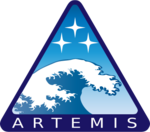 Emblem of the original Artemis project; later used as the Foundation logo. | |
| Established | April 1, 2014 |
|---|---|
| Headquarters | Port Phobos, Phobos, Mars (until December
31, 2014
) 1, 2015
) |
| Primary spaceport | John F. Kennedy Space Center, Titusville, FL |
| Motto | Ex Scientia Ad Astra |
| Administrator | Sullivan Dwyer |
The Artemis Foundation was founded on April
1, 2014 to support the April Fool's Purchase. Nobody was more surprised than Noah Scott when his offer to purchase was accepted, and he quickly expanded the Artemis Foundation from a shell company to an actual corporation.
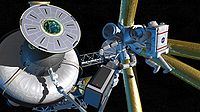
Their primary business is administration of Project Artemis, the space science body formed after the majority of NASA's space operations were absorbed by the Transrationality Science Assessment Bureau. (To most people, "Artemis Foundation" and "Project Artemis" are interchangeable.) In support of Project Artemis, they also operate the shipyard Ley in the Main Belt, where they build Shuttles for themselves and anyone else who can afford to buy them[1] and unmanned probes for themselves. In order to break even, they also deliver 'Danelaw satellites to Earth orbit and maintain the International Space Station.
They are owned 85% by Stellvia Corporation, 5% by 'Dane interests supposedly not connected with NASA, and 10% by other Fen organizations and individuals.
The Artemis Foundation employs many of the civilian scientists and researchers previously employed by NASA's space sciences divisions, and leases the Shuttle processing facilities located at the John F. Kennedy Space Center in Florida.
Their physical assets include the Shuttles Discovery (the Foundation's flagship), Endeavour, Atlantis, Challenger, Resolution, Gjøa, and Calypso, Main Belt Research Stations McAuliffe and Chawla, shipyard Ley and the Handwavium Propulsion Laboratory (both located on asteroid 2709 Sagan), Earth-Luna L5 station Beta, many varieties of unmanned exploration drones in orbit around all four of Sol's gas giants and throughout the Alpha Centauri system, and administrative offices in Crystal Kyoto, Starbase 1, Starbase 2, and Stellvia. They also rent small offices in Canberra, ACT, Australia; Baikonur and Astana, Kazakhstan; and Titusville, FL, and Washington, DC, USA. Their main administrative offices are in Port Phobos, but are being moved to Odyssey - they expect to have finished that relocation by the end of 2014.
For obvious reasons, the Artemis Foundation does not get along well with the TSAB.
Typical Mission: Project Juno
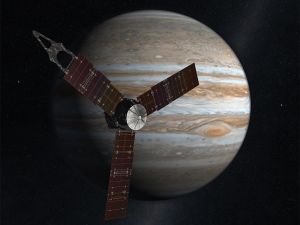
This mission, typical of Project Artemis pure-science studies, was originally proposed by NASA before the Wave as a way to increase mankind's knowledge of the planet Jupiter.
With its suite of science instruments, Juno investigates the existence of a solid planetary core, maps Jupiter's intense magnetic field, measures the amount of water and ammonia in the deep atmosphere, and observes the planet's auroras.
Juno’s principal goal is to understand the origin and evolution of Jupiter. Underneath its dense cloud cover, Jupiter safeguards secrets to the fundamental processes and conditions that governed our solar system during its formation. As the primary example of a giant planet in the Sol system, Jupiter can also provide critical knowledge for understanding the planetary systems being discovered around other stars.
Related Images
Endeavour dedication plaque.
Discovery dedication plaque.
Atlantis dedication plaque.
Challenger ship emblem.
Resolution ship emblem.
Notes
- ↑ under licence from the Soviet Air Force, which irks them no end
| ||||||||||||||||||||||||||||||||||||
| ||||||||||||||||||||




